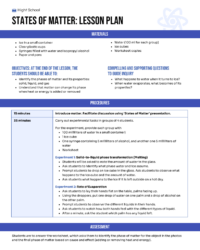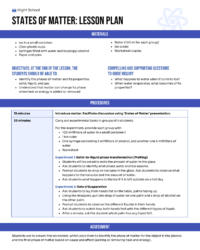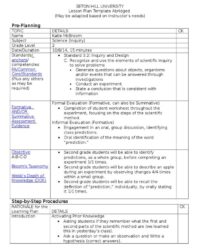Shifting the classroom dynamic from teacher-centered lectures to student-driven discovery can be incredibly rewarding for both educators and learners. Inquiry-based learning stands out as a powerful pedagogical approach that encourages students to ask questions, explore ideas, and construct their own understanding of the world around them. It is about fostering curiosity and empowering students to become active participants in their educational journey, rather than passive recipients of information.
However, for many educators, transitioning to this methodology might seem daunting. How do you structure a lesson that isn’t just about delivering facts, but about guiding students through a process of investigation? This is precisely where a well-designed framework can make all the difference, providing a roadmap for teachers to facilitate meaningful, student-led learning experiences.
Understanding the Core of Inquiry Based Learning
At its heart, inquiry-based learning isn’t just a teaching method; it’s a philosophy. It operates on the premise that students learn best when they are actively engaged in questioning, investigating, and making sense of phenomena. Instead of simply presenting information, teachers act as facilitators, posing compelling questions, providing resources, and guiding students as they navigate complex problems and concepts. This approach cultivates critical thinking, problem-solving skills, and a deeper, more enduring understanding of the subject matter.
The benefits extend far beyond academic achievement. Inquiry-based learning encourages collaboration, communication, and self-direction. Students learn to formulate their own questions, design experiments or research plans, analyze data, and communicate their findings effectively. This fosters independence and resilience, preparing them for real-world challenges that don’t always come with a clear-cut answer. It’s about building a foundation for lifelong learning.
Key Elements of an Effective Inquiry Lesson
An inquiry-based lesson isn’t haphazard; it follows a structured yet flexible progression, often referred to as the "5 Es" model, though variations exist. Understanding these phases is crucial for effective planning.
- Engage: Spark student curiosity, connect to prior knowledge, and introduce the compelling question or problem.
- Explore: Provide opportunities for hands-on investigation, experimentation, and data collection. Students are actively doing, not just observing.
- Explain: Students articulate their findings, share observations, and explain concepts in their own words. The teacher clarifies misconceptions and introduces formal terms.
- Elaborate: Students apply their new understanding to new contexts, solve further problems, or conduct additional investigations.
- Evaluate: Assess student understanding, skills, and the inquiry process itself. This can be formal or informal.
Why Use a Template?
Given the dynamic nature of inquiry, you might wonder why a template is necessary. A well-crafted inquiry based lesson plan template provides a consistent framework, ensuring that all crucial elements of an effective inquiry cycle are considered and integrated into your lesson design. It helps transform abstract pedagogical theory into concrete, actionable steps.
- It provides a clear structure for brainstorming and organizing ideas.
- It ensures all phases of the inquiry process are addressed thoughtfully.
- It helps align student activities with specific learning objectives and assessment strategies.
- It serves as a valuable record for reflection and future refinement of lessons.
- It ultimately saves preparation time by streamlining the planning process.
Crafting Your Own Inquiry Based Lesson Plan
Creating an inquiry-based lesson plan isn’t about filling in blanks rigidly; it’s about using the structure to unleash creativity and student potential. The power of an inquiry based lesson plan template lies in its ability to guide your thought process, ensuring that you design learning experiences that are genuinely exploratory and meaningful for your students. It helps you shift from simply covering content to focusing on deep understanding and skill development.
Start by identifying a captivating question or a real-world problem that will genuinely intrigue your students. This question should be open-ended, not easily answered with a quick internet search, and allow for multiple pathways of investigation. Then, consider what prior knowledge students might bring to the table and what new concepts they will need to grapple with to answer the question. Your role is to anticipate potential avenues of exploration and provide the necessary resources, without dictating the exact path.
When outlining the "explore" phase, think about the kind of hands-on activities, experiments, or research tasks that will allow students to gather information and test their hypotheses. Remember, the goal is for them to discover, not just confirm what you already know. The "explain" and "elaborate" phases are crucial for students to consolidate their learning and apply it in new contexts. A good template will prompt you to consider these elements systematically:
- Compelling Question/Problem: What will drive the inquiry?
- Learning Objectives: What enduring understanding or skills will students gain?
- Engagement Strategy: How will you hook your students’ interest?
- Exploration Activities: What will students do to investigate the question?
- Resources: What materials, information, or tools will students need?
- Explanation/Sense-Making: How will students share and process their findings?
- Elaboration/Application: How can students extend or apply their learning?
- Assessment: How will you gauge student learning and the effectiveness of the inquiry?
Embracing inquiry-based learning transforms the classroom into a vibrant space where curiosity thrives and learning becomes an adventure. By utilizing a thoughtful framework, educators can confidently design lessons that empower students to become active explorers and critical thinkers. It’s about moving beyond rote memorization to foster a genuine understanding of concepts and the development of essential skills for life.
Ultimately, the goal is to cultivate a love for learning that extends far beyond the classroom walls. When students are empowered to ask questions, seek answers, and construct their own knowledge, they develop a sense of ownership over their education and a lifelong passion for discovery. This approach doesn’t just teach content; it teaches students how to learn, an invaluable skill in an ever-changing world.


